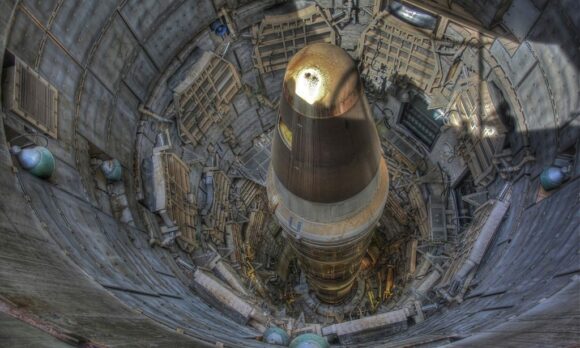
Artificial Intelligence and International Stability Project
Despite calls from prominent scientists to avoid militarizing AI, nation-states are already using AI and machine-learning tools for national security purposes. AI has the potential to impact international peace and security in myriad ways, from countering terrorism to nuclear stability. Developments in AI could provide security benefits, but current AI systems have substantial limitations and vulnerabilities. A headlong rush into AI security applications could pose risks to international stability or a “race to the bottom” on AI safety.
The two-year project, supported by a grant from Carnegie Corporation of New York, examines how artificial intelligence will influence international security and stability. The interdisciplinary project is building a community from academia, business, and government policy makers to understand how AI is likely to develop and shape the international security environment across multiple regions and issues. Through a series of workshops, commissioned papers, and reports, the project is fostering a community of practice and is laying a foundation for a field of study on AI and international security. The project will conclude with recommendations to policymakers for ways to capitalize on the potential stabilizing benefits of artificial intelligence, while mitigating the risks that could undermine security and stability.
Learn more:
The Center for a New American Security (CNAS) commissioned the following papers as part of the Center's Artificial Intelligence and International Stability Project. These publications were also made possible in part by a grant to CNAS from Carnegie Corporation of New York. The statements made and views expressed are solely the responsibility of the authors.
AI & Military Procurement: What Computers Still Can’t Do
Not all artificial intelligence (AI) is made equal. A wide range of different techniques and applications fall under the term “AI.” Some of these techniques and applications w...
When machine learning comes to nuclear communication systems
Nuclear deterrence depends on fragile, human perceptions of credibility. As states armed with nuclear weapons turn to machine learning techniques to enhance their nuclear com...
How Adversarial Attacks Could Destabilize Military AI Systems
Artificial intelligence and robotic technologies with semi-autonomous learning, reasoning, and decision-making capabilities are increasingly being incorporated into defense, m...
AI Deception: When Your Artificial Intelligence Learns to Lie
In artificial intelligence circles, we hear a lot about adversarial attacks, especially ones that attempt to “deceive” an AI into believing, or to be more accurate, classifyin...
Artificial Intelligence, Foresight, and the Offense-Defense Balance
There is a growing perception that AI will be a transformative technology for international security. The current U.S. National Security Strategy names artificial intelligence...
Russia’s AI Quest is State-Driven — Even More than China’s. Can It Work?
More than Western governments and even more than China’s, the Russian government is trying to position itself as a facilitator of innovation in artificial intelligence, the te...
Artificial Intelligence Research Needs Responsible Publication Norms
After nearly a year of suspense and controversy, any day now the team of artificial intelligence (AI) researchers at OpenAI will release the full and final version of GPT-2, a...
Learn more about the Artificial Intelligence and International Stability Project:
AI and International Stability: Risks and Confidence-Building Measures
Exploring the potential use of confidence-building measures built around the shared interests that all countries have in preventing inadvertent war....
The Militarization of Artificial Intelligence
Militaries are racing to adopt artificial intelligence (AI) with the aim of gaining military advantage over competitors. And yet, there is little understanding of AI’s long-te...
Understanding China's AI Strategy
Introduction In the second half of 2018, I traveled to China on four separate trips to attend major diplomatic, military, and private-sector conferences focusing on Artificial...
Killer Apps
The nation that leads in the development of artificial intelligence will, Russian President Vladimir Putin proclaimed in 2017, “become the ruler of the world.” That view has b...
The American AI Century: A Blueprint for Action
Foreword By Robert O. Work We find ourselves in the midst of a technological tsunami that is inexorably reshaping all aspects of our lives. Whether it be in agriculture, finan...











